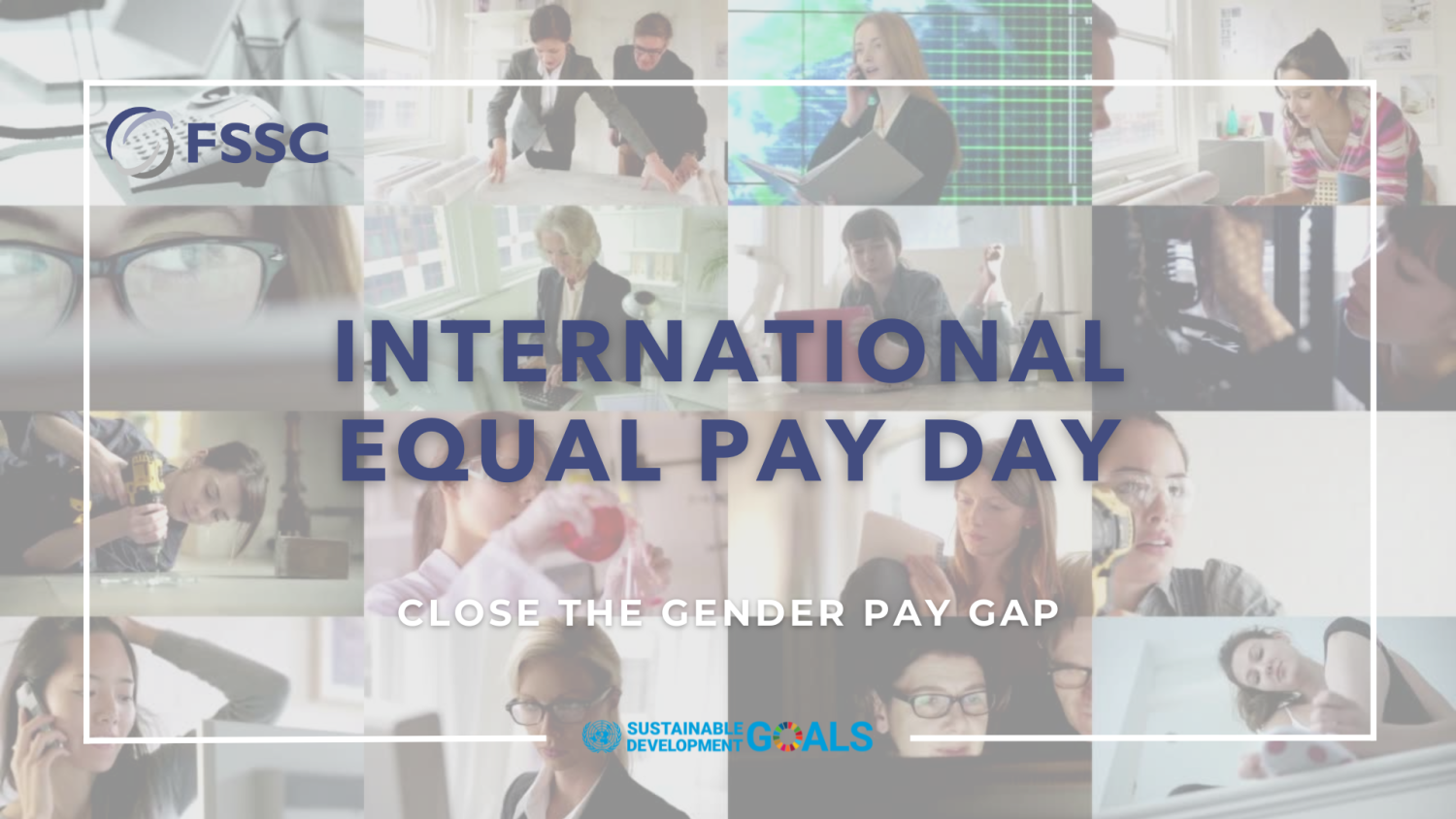Each year on International Equal Pay Day, the global community reflects on the persistent inequality in wages between men and women and the broader consequences it holds for society and economic development.

Despite decades of awareness and advocacy, the global gender pay gap remains at around 23%, with women still earning less than men for work of equal value. And this figure worsens in many developing economies and marginalized communities.
Foundation FSSC recognizes that this is not just a policy or legal issue. It is a systemic challenge that the consumer goods industry must address through structured, auditable, and credible frameworks. Third-party certification schemes, like FSSC 24000, provide the global supply chain with the tools to help organizations embed accountability, equity, and transparency into their core operations.
Equal pay is not only a human right but a business imperative. It aligns directly with our mission to ensure the integrity and improvement of systems contributing to a safe, responsible, and sustainable supply chain. But more than that, it speaks to the heart of what social management systems are designed to do.
Equal Pay in the Context of Responsible Business
Food and non-food sectors, including manufacturing, packaging, and logistics, are among the largest global employers and often rely on large, diverse labor forces. Furthermore, these industries are characterized by varied and decentralized supply chains, where social risks such as wage discrimination, unsafe working conditions, and a lack of grievance mechanisms can persist without adequate oversight.
Women and underrepresented groups often play a critical yet overlooked role. Persistent wage disparities harm individuals and families and undermine productivity, morale, and retention.
Equal pay for equal work is a fundamental human right and a cornerstone of decent work and inclusive growth. However, delivering on this right requires more than good intentions; it demands structured social management systems, auditable standards, and ongoing accountability.
With modern sustainability expectations and ESG (Environmental, Social, Governance) reporting, companies cannot afford to ignore pay equity.
Social Management Systems: A Framework for Equity
Social management systems are integrated frameworks that allow organizations to identify, monitor, and address social risks within their operations and supply chains. When embedded into certification schemes like FSSC 24000, these systems drive systemic improvements in workplace conditions, including policies on non-discrimination, equal opportunities, and fair remuneration.
Key elements of Social Management Systems that support equal pay:
- Risk Identification and Assessment
Social risk assessments help organizations detect wage gaps and pay-related inequities, especially in complex supply chains and outsourced operations. - Policy and Governance
Businesses must implement clear policies on equal opportunity and fair compensation, supported by management systems that ensure enforcement and continuous improvement. - Human Rights and Labor Practices
Organizations must assess and uphold non-discriminatory labor practices, including fair and equal remuneration, regardless of gender, ethnicity, or other factors. - Auditable Transparency
Companies are held accountable for progress toward equitable pay structures through third-party audits and continuous improvement cycles. - Stakeholder Engagement
Social management systems promote worker voice and grievance mechanisms, ensuring that employee concerns about pay inequality are addressed fairly. - Data-Driven Improvements
Integrating data collection ensures that wage analysis is not a one-time exercise but a routine element of business performance and sustainability reporting.
Certification as a Catalyst for Social Change
FSSC recognizes that third-party certification is not just about compliance – it’s about transformation. When organizations adopt credible social management systems, they are better equipped to go beyond compliance and lead with purpose.
They support organizations to:
- Demonstrate leadership in human rights and gender equality.
- Address the root causes of wage disparities in a measurable and structured way.
- Comply with international regulations and investor expectations around social sustainability and due diligence.
- Align with UN Sustainable Development Goal 5 (Gender Equality) and Goal 8 (Decent Work and Economic Growth).
A Call to Action on International Equal Pay Day
As we mark the UN’s International Equal Pay Day, FSSC reaffirms our commitment to driving social equity through robust, auditable, transparent, and globally recognized management systems. We encourage companies across the consumer goods industry to take a proactive stance in addressing wage inequality.
We call on all stakeholders—from producers and processors to auditors and regulators—to use certification as a tool for fairness and inclusion.
With the right systems in place, we can close the gap, elevate workplace dignity, and create a more just and sustainable world for all.

Explore our insights
-
Insights Webinar FSSC 22000: Hygienic Transport of Food Through Effective Tank Cleaning
Past event
|
3 December, 2025
-
Webinar: Action Plan Towards COP30 - Sustainable Food Systems
Past event
|
6 November, 2025
-
Insights Webinar FSSC 24000: Make with Care, Certify for Trust
Past event
|
22 October, 2025



